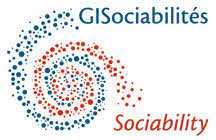Theorias
 Theorias is a transdisciplinary and international network of theorisation of spirituality, created in 2012 at the University of Louvain La Neuve (Belgium), following the conference “Transdisciplinary Approaches to Spirituality in the Arts and Sciences” jointly organised by the ACE laboratory (Rennes 2) and the CTEL ( Transdisciplinary Centre of Epistemology of Literature, Nice) at the University of Nice-Sophia Antipolis in June 2011. This network aims to develop a theorisation of the notion of spirituality in order to make it a concept that can be used in the various fields of scientific knowledge.
Theorias is a transdisciplinary and international network of theorisation of spirituality, created in 2012 at the University of Louvain La Neuve (Belgium), following the conference “Transdisciplinary Approaches to Spirituality in the Arts and Sciences” jointly organised by the ACE laboratory (Rennes 2) and the CTEL ( Transdisciplinary Centre of Epistemology of Literature, Nice) at the University of Nice-Sophia Antipolis in June 2011. This network aims to develop a theorisation of the notion of spirituality in order to make it a concept that can be used in the various fields of scientific knowledge.
For more informations: Theorias Network.
GIS Institut des Amériques – Rennes
 The IDA Rennes Scientific Interest Group pursues an international policy whose goal is to develop the influence of Rennes’ research in the Americas and to promote an international presence in Rennes. Its mission is to consolidate and revitalise institutional partnerships, develop exchanges between Rennes’ higher education establishments and American institutions, and strengthen the international dimension of Americanist masters degrees.
The IDA Rennes Scientific Interest Group pursues an international policy whose goal is to develop the influence of Rennes’ research in the Americas and to promote an international presence in Rennes. Its mission is to consolidate and revitalise institutional partnerships, develop exchanges between Rennes’ higher education establishments and American institutions, and strengthen the international dimension of Americanist masters degrees.
For more information: GIS IdA-R
GIR EIRE
 The Groupement d’Intérêt Scientifique (GIS) EIRE project has received official support from the Irish Government and the Minister for Foreign Affairs and Trade (DFAT), who launched the project in April 2018 in Paris, in the presence of Minister Ciarán Cannon and the Irish Ambassador to France, Patricia O’Brien. The GIS EIRE is hosted at the University of Rennes 2 and directed by Anne Goarzin. The project runs for 2 years (2019-21) renewable.
The Groupement d’Intérêt Scientifique (GIS) EIRE project has received official support from the Irish Government and the Minister for Foreign Affairs and Trade (DFAT), who launched the project in April 2018 in Paris, in the presence of Minister Ciarán Cannon and the Irish Ambassador to France, Patricia O’Brien. The GIS EIRE is hosted at the University of Rennes 2 and directed by Anne Goarzin. The project runs for 2 years (2019-21) renewable.
The GIS EIRE includes at this point 50 individual members attached to 23 institutional partners, including 2 in Ireland (Dublin, Belfast). The GIS EIRE was conceived as a project which allows teacher researchers from all over France whose research relates to Ireland to constitute a scientific network around common problems, and to submit ambitious and innovative research projects on an international scale.
Its objective is to implement interdisciplinary approaches and to integrate specialities and methodologies that will complement the approaches of the anglicist teacher-researchers (e.g. law, education, psychology, digital culture, etc.), in order to develop research perspectives that do not yet exist in France (e.g. “Human rights and literature” at NUI Galway).
The project has two axes:
- Axis 1: The Irish diaspora: economic aspects, migration, integration
Co-directed by Anne Groutel (Paris 1) and Grainne O’Keeffe-Vigneron (Rennes 2) - Axis 2: Human rights and democracy: which Irish models?
Co-supervised by Karin Fischer (Orléans) and Nathalie Sebbane (Paris)
For more information: GIS EIRE Website.
GIS MidIb
 MIDIB is an international and interdisciplinary network of academics working on immigration and cultural diversity in the the UK and the Republic of Ireland, looking also at specifically Northern Irish, Welsh, Scottish and English themes and issues related to migration and diversity. It is based at the University of Toulouse Jean Jaurès and is managed jointly by Vincent Latour (Professor of British Studies, University of Toulouse-Jean Jaurès) and Romain Garbaye (Professor of British Studies, University Sorbonne Nouvelle in Paris). 16 founding institutions are party to the convention establishing the network. The objective is to stimulate interactions between scholars from France, the United Kingdom, Ireland and, in the longer run, from further afield as well.
MIDIB is an international and interdisciplinary network of academics working on immigration and cultural diversity in the the UK and the Republic of Ireland, looking also at specifically Northern Irish, Welsh, Scottish and English themes and issues related to migration and diversity. It is based at the University of Toulouse Jean Jaurès and is managed jointly by Vincent Latour (Professor of British Studies, University of Toulouse-Jean Jaurès) and Romain Garbaye (Professor of British Studies, University Sorbonne Nouvelle in Paris). 16 founding institutions are party to the convention establishing the network. The objective is to stimulate interactions between scholars from France, the United Kingdom, Ireland and, in the longer run, from further afield as well.
For more information: GIS Website.
GIS Sociabilités/ Sociability

GIS Sociability was created by a constitutive convention in June 2017. Initially composed of 8 partners, it now includes 15 (universities from 5 different countries, a Canadian research group from UQAM, the Cognacq-Jay Museum, the BNF and the British National Archives) and is open to new collaborations.
The scientific partnership of the GIS is intended to federate competences and means to carry out a research programme dedicated to the sociabilities of the long eighteenth century in Europe and the colonial world, entitled: “History, models and transfers in European and colonial societies from 1650 to 1850”, and allowing the exploration of a variety of themes and questions at the heart of research on sociabilities. The axes of the scientific programme are renewed every three years.
From 2022 to 2025, the new research programme of the GIS Sociabilités will explore 4 major themes:
– Axis 1: Sociability and politicisation
– Axis 2: Food, drink and sociability
– Axis 3: The sociability of objects
– Axis 4: Sociability and travel
More information: https://www.univ-brest.fr/gis-sociabilites
EUR CAPS
 Creative Approaches to Public Space – CAPS – is a new graduate school developed by Rennes 2 University, in partnership with the Ecole européenne d’art de Bretagne – EESAB – European Academy of Art in Brittany and the Ecole nationale supérieure d’architecture de Bretagne – ENSAB – Brittany National College of Architecture and the Centre national de la recherche scientifique – CNRS – National centre for scientific research. CAPS is supported by the French National Research Agency, the Brittany Regional Council, Rennes Metropole and Ville de Rennes.
Creative Approaches to Public Space – CAPS – is a new graduate school developed by Rennes 2 University, in partnership with the Ecole européenne d’art de Bretagne – EESAB – European Academy of Art in Brittany and the Ecole nationale supérieure d’architecture de Bretagne – ENSAB – Brittany National College of Architecture and the Centre national de la recherche scientifique – CNRS – National centre for scientific research. CAPS is supported by the French National Research Agency, the Brittany Regional Council, Rennes Metropole and Ville de Rennes.
CAPS focuses on innovative, creative ways of experimenting in academic research, teaching and action, all within public space. Our aim is to combine creative imagination, critical thinking, and interdisciplinary collaboration. With several local and international partnerships, CAPS seeks to create new encounters with publics from within the university environment, and outside of it. Our goal is to play an active role in society, with creativity at the centre of our actions.
CAPS thinks about public space with practice-based research in mind, and also as a way of working with civil society to create things (objects, art works, performances), whilst engaging with different publics and experts. CAPS thrives on interdisciplinarity, and involves collaboration between several university departments – such as Geography and Urban Planning, Arts, Information Communication, Sociology and Languages – as well as close cooperation with Rennes’ top art and architecture institutions.
The Graduate School format is new to France, and will provide Masters and Doctorate level training for students coming from all pathways, sharing a common interest in public space.
We are currently busy creating an open-style MA programme, due to open in September 2022, with the unique possibility of sharing modules with international partners: making it collaborative, international and interdisciplinary.
For more information: EUR CAPS Website.
